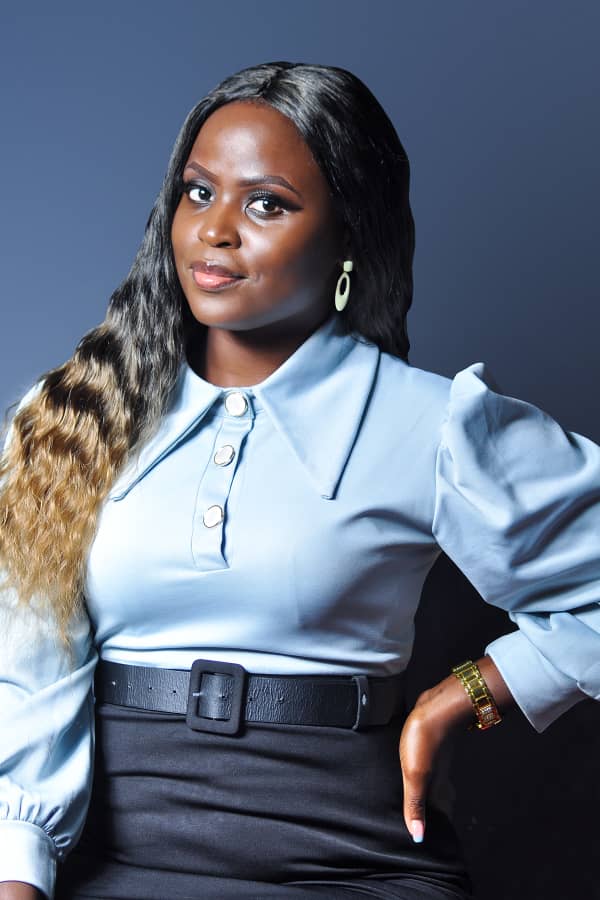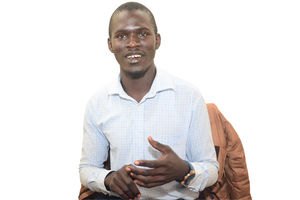
Uganda Red Cross Society communication and media relations officer John Cliff Wamala interacts with a woman recently. PHOTO/ESTHER BRIDGET NAKALYA
What is a typical day likein the life of a volunteer at the Red Cross?
Across our 51 branches nationwide, we have a volunteer and membership base of close to 500,000 people.
Our volunteers are passion-driven and at the centre of our programming and are always among the first responders in case of an emergency. Even in the face of adversity.
The challenges they face include putting their lives in harm’s way, to be able to save others. It is total sacrifice and they are equally exposed to risks such as handling Ebola patients, bleeding patients, dead bodies (those who conduct safe and dignified burials), and handling people affected by landslides. Our volunteers do more than just sacrifice, they are devoted and committed humanitarians. They are heroes.
Since your appointment, what impact had you made when it comes to extending humanitarian services across the country?
It is difficult to measure impact, especially in just a year but what I can say is that everyone’s effort is a building block to the big Brand that the Uganda Red Cross is today.
My major contribution on the team is strategic communication and ensuring that the amazing work done by our hidden heroes both in humanitarian and development contexts is amplified.
I have witnessed great changes in the lives of people, families, and communities that we serve.
The impact of our humanitarian support is life-changing. Hope, especially among displaced people has been restored, families reunified, resilience strengthened and livelihoods boosted.
What virtues drive you?
Empathy, passion for humanitarian work, compassion, collaboration and life-line communication.
What are some of your achievements so far?
My work has been recognised. For example, last year the Media Challenge Initiative recognised me as an outstanding alumnus in PR and communications. My work has been used to account for donor resources and telling the Red Cross story as the leading humanitarian body of our generation and those to come.
How should young professionals in the field of humanitarian work conduct themselves?
I encourage young professionals to find mentors in the field. Agility and professionalism are also key for the work environment. I encourage fresh graduates to exhibit patience and volunteer so that they gain skills relevant to the job market.
What scenarios are you faced with that cause you to compromise your comfort in order to meet your work expectations?
Humanitarian response requires one to be committed, available all the time and flexible. Having a genuine passion to help has on several occasions gotten me out of my comfort zone. From travelling long distances to working long hours and not seeing my family for days. The fulfilling part of the job is seeing those in need receive relief in the form of humanitarian support.
How has working in this field shaped your personality and mindset?
Working in humanitarian work has given me purpose. Through my interaction with the populations we serve, I have become more empathetic, and receptive to people’s different schools of thought.
Your best quote or book?
Quote: “I can do all things through Christ who gives me strength.” Philippians 4:13
Book: 48 Laws of Power by Robert Greene



